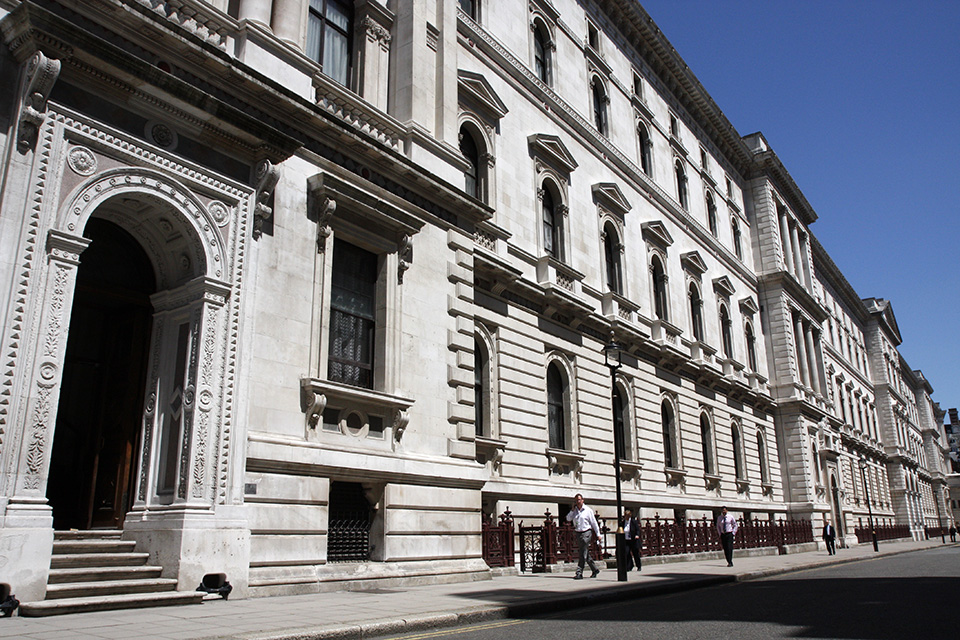23 March 2021 | ANALYSIS
This week, Tower Hamlets Council passed a motion to rename streets around the new Chinese Embassy’s planned site in London to Tiananmen Square, Hong Kong Road, Uighur Court and Tibet Hill.
Rabina Khan, a Liberal Democrat Councillor for Shadwell ward, seconded the motion and declared that through the Bill, the Council was “making sure that we call out the Chinese Communist Party’s human rights violations against the Uygur Muslims, and also the fact we are standing up for the people of Tibet and stand in solidarity with Hong Kong”.
The motion was approved on the condition the move does not cost any money. Mayor John Biggs rejected a previous request to fly the Tibetan flag on the anniversary of a 1959 failed uprising. Still, Cllr Khan and Peter Golds, a Tory Councillor for Island Gardens, held up the flag outside the offices themselves.
Labour holds 41 of the 45 seats on the Council, so significantly, these moves have a firm deal of cross-party support. They also provide an opportunity for the central government. While this gesture is mainly symbolic, symbolism can go a long way in the realm of international relations, where compromise and pulling and hauling between different bureaucracies and states can be difficult. It also sends a message to the people of Tibet, Xinjiang and Hong Kong that they have friends in Tower Hamlets.
The opportunity for the executive branch could be a significant one. The UK, spearheaded by Foreign, Commonwealth and Development Secretary Dominic Raab, has been critical of China’s recent violations of the Joint Sino-British Declaration on Hong Kong’s status and the effective destruction of the ‘One Country, Two Systems’ principle.
When the UK releases its six-monthly report into Hong Kong’s situation, even when it does not criticise China, Beijing accuses the UK of meddling in its affairs. There is also the occasional reference to the UK still maintaining some form of colonial mentality. If the UK stood against authoritarianism in parts of China, it has no historical relationship that would significantly reduce this line of criticism. Now, the British Government has spoken of Brexit as an opportunity to be more outward-looking beyond Europe and into other parts of the world. This could be done through the increased promotion of democracy and an effort to hold increasingly authoritarian states, of which there are sadly a number, to account.
Authoritarian regimes do fall, but these tend to happen in waves. Post-World War II,with the fall of Nazi Germany and Mussolini’s Italy, in the 1970s and 1980s with the fall of Franco in Spain, Salazar in Portugal and the increasing rise of democratisation in Latin America. Britain punches above its weight in the international relations field, and spearheading another wave of democracy by holding states to account could be a way to increase this power. Since the Carnation Revolution, Portugal has increased its soft power through its involvement in peace-keeping missions. It has won the UN Security Council’s election largely due to its increased prestige from these missions.
Whilst this proposal by Tower Hamlets is symbolic, it would be wise to apply a degree of contextual relativism. Sanctions can work, but only if there is a consensus among the international community. Given China’s textbook pursuit of soft power since the turn of the millennium through projects like the Belt and Road Initiative, such consensus would be practically impossible.
Mr Raab has spoken of embarking upon “constructive engagement” with Beijing – which is not unreasonable, given China’s strength. Still, the Causeway Book disappearances paint a picture of a China that would be difficult to trust. Five workers at a bookshop in Hong Kong, stocking books banned in the Mainland, disappeared. Several of them were found in China without the necessary documentation to cross the border. One of the men had British citizenship.
The official Government line was that the men were in custody in relation to a historical traffic violation. Upon returning to Hong Kong, one of the men claimed their filmed confessions regarding their movements and actions were scripted. The Foreign Secretary at the time, Philip Hammond, expressed concern about the apparent violation of Hong Kong law and separate legal system, enshrined in the handover agreement. All this came just months after Xi Jinping’s 2015 visit to London and Manchester.
The more persuasive argument is that the Foreign Office ought to give serious consideration to a strategy in which these human rights abuses worldwide are all linked together and pushed against in a co-ordinated effort. By leading another wave of democracy, the Government may end up strengthening democratic norms. This increases its chances not only of successfully tackling increasing authoritarianism everywhere by gaining greater support, but also of increasing its soft power, through staunchly backing a cause that a significant number of people would say raises its prestige in the same way Portugal has done in recent decades.
In terms of Hong Kong and China, China is mighty, so to protect the rights of Hong Kongers to whom the UK has a responsibility, due to previous treaties and the eligibility of citizens to be BN(O)-holders, an increase in soft power would go a long way.

























